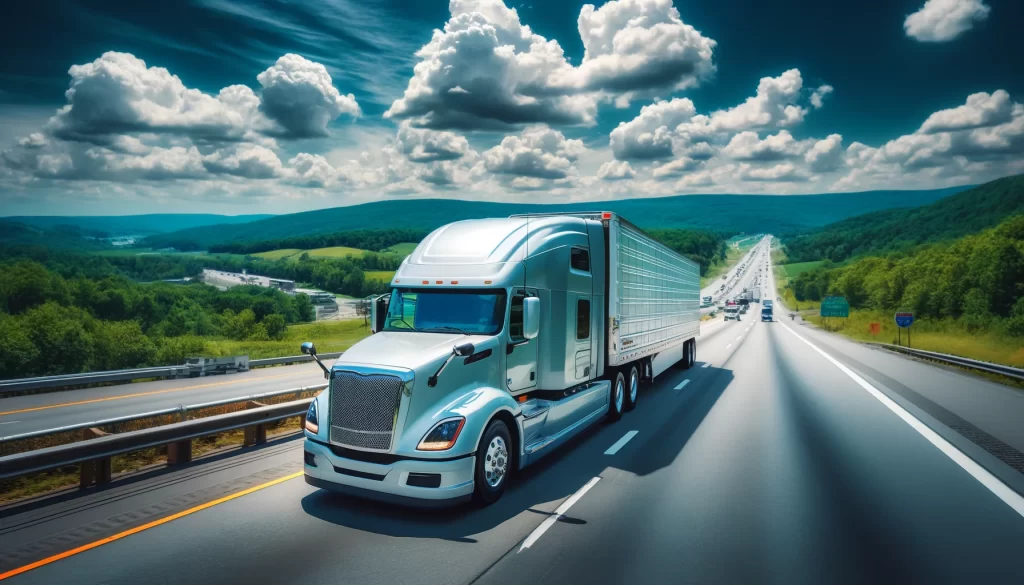Kansas Oversize Permits
Freedom Heavy Haul can offer expedited Pickup and Delivery for any size shipment anywhere in the USA. Contact us today for No Hassle, No Pressure Pricing.
In the state of Kansas, the transportation of oversized loads that exceed standard legal dimensions requires special permits to ensure road safety and infrastructure integrity. These permits are vital for companies and individuals aiming to transport large items such as heavy machinery, construction equipment, and other large-scale commodities. In this article, you will learn about Kansas Oversize Permits.
Introduction to Kansas Oversize Permits
Oversize load permits are governed by regulations designed to protect roadways and ensure the safety of all road users. These permits detail specific route assessments, travel times, and necessary precautions to mitigate risks associated with transporting oversized loads.
Role of Kansas Department of Transportation
The Kansas Department of Transportation (KDOT) plays a critical role in the oversight and issuance of these permits. KDOT ensures that all transport meets state regulations and coordinates with various agencies to maintain road safety.
Importance of Compliance for Road Safety
Compliance with oversize permit regulations is crucial. Non-compliance can lead to severe penalties, including fines and revocation of transportation licenses. Adhering to these rules helps prevent accidents and road blockages, which can cause significant disruptions and economic losses.
Navigating the Application Process
Applying for an oversize permit in Kansas is a streamlined process, facilitated by the Kansas Truck Routing and Intelligent Permitting System (K-TRIPS).
Initial Registration with K-TRIPS
To begin the application process, carriers must register with K-TRIPS, an online system that manages permit applications. This system simplifies the submission and management of applications, providing a platform for users to obtain necessary permits efficiently.

Detailed Steps to Secure a Permit
Once registered, the applicant must submit detailed information about the vehicle and load, including dimensions, weight, and intended route. This information is crucial for assessing whether the proposed transport meets safety standards and route requirements.
Required Documentation for Application
The application process also requires specific documentation, including proof of insurance and vehicle registration. These documents are essential to verify the legitimacy and readiness of the carrier to undertake the transport task.
Oversize Load Specifications and Limitations
Understanding the limits within which oversized loads can operate is essential for planning and compliance.
Standard Dimensions Allowed Without Special Permits
The standard legal limits for loads in Kansas, without requiring special permits, include a width of up to 8 feet 6 inches and a height up to 14 feet. Loads within these dimensions can travel without special permissions, adhering to general traffic laws.

Extended Limits for Routine and Super Loads
For loads exceeding these dimensions, routine permits allow for dimensions up to 126 feet in length, 16 feet 6 inches in width, and 18 feet in height. Loads that exceed these extended limits are classified as super loads, and they require additional permits and often police escorts.
Operational Guidelines for Permitted Vehicles
The operation of vehicles under an oversize permit follows strict guidelines to ensure safety on the road.
Designated Travel Times and Restrictions
Permitted loads are generally allowed to travel one-half hour before sunrise to one-half hour after sunset. There are restrictions during adverse weather conditions or in high-traffic periods, typically requiring prior approval for night or weekend travel.
Rules for Escort Vehicles and Safety Measures
Certain oversize loads require escort vehicles to enhance safety. These escorts help manage traffic, ensure the load moves safely along the designated route, and communicate with other road users to prevent accidents or disruptions.
Specific Highway and Turnpike Regulations
Different routes in Kansas may have specific requirements based on local traffic patterns and road conditions.
Unique Requirements on Kansas Highways
Each highway may have specific restrictions based on bridge capacities and road widths. Carriers must obtain relevant information from KDOT to avoid route violations.

Turnpike Rules for Oversized Vehicles
The Kansas Turnpike Authority specifies different rules for oversized vehicles, focusing on maximum allowable dimensions without escorts and times of travel. It is crucial for carriers to review these specific guidelines to adhere to Turnpike regulations.
Ensuring Compliance and Understanding Penalties
Adhering to permit stipulations is not only a legal requirement but also a critical component of road safety.
Procedures for Monitoring Compliance
KDOT and other regulatory bodies actively monitor compliance through roadside checks and weigh stations. These procedures are in place to confirm that carriers are adhering to the terms of their permits.
Consequences of Non-Compliance
Violations of permit terms can result in hefty fines, impoundments, and even criminal charges. Regular training and updates for drivers and companies on permitconditions ensure compliance and reduce the risk of infractions.
Resources and Support for Carriers
To support carriers in the complex process of managing oversize loads, multiple resources and support systems are available.
Contact Information for Permit Assistance
For assistance with permits, carriers can contact the Kansas Department of Transportation’s Central Permit Office. This office provides guidance on permit requirements and application procedures.
Online Resources and Support Systems
K-TRIPS and other online portals offer extensive resources, including FAQs, user guides, and direct contact links for support. These resources are designed to assist carriers in understanding and navigating the permit process effectively.
Recent Changes and Updates in Permit Regulations
Staying informed about the latest regulatory changes is crucial for carriers to maintain compliance and operational efficiency.
Updates to Permit Application Process
Recent updates to the application process may include changes in the documentation requirements or the application platform itself. Such updates aim to streamline the process and improve user experience.
Recent Regulatory Changes Affecting Oversize Permits
Regulatory changes may involve adjustments to size and weight limits, travel times, or other critical aspects of the permit. It’s essential for







